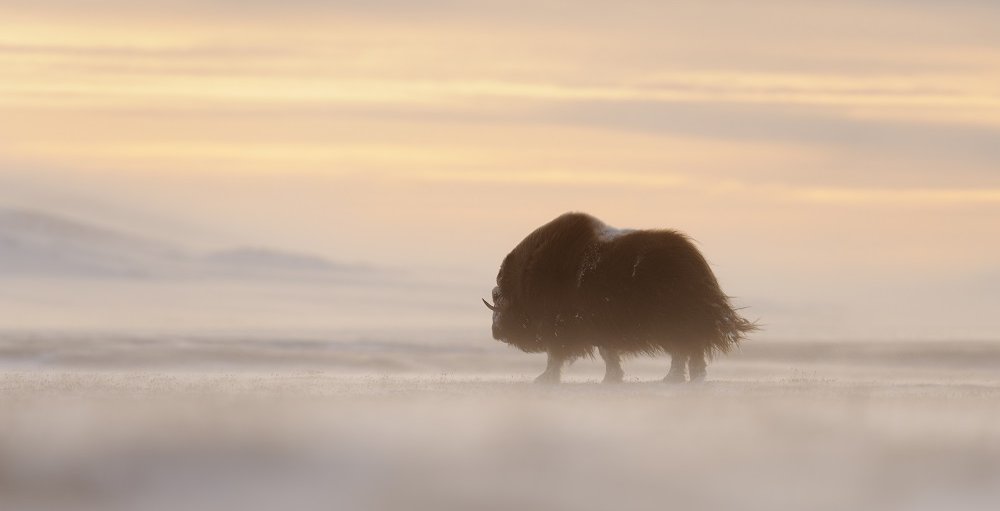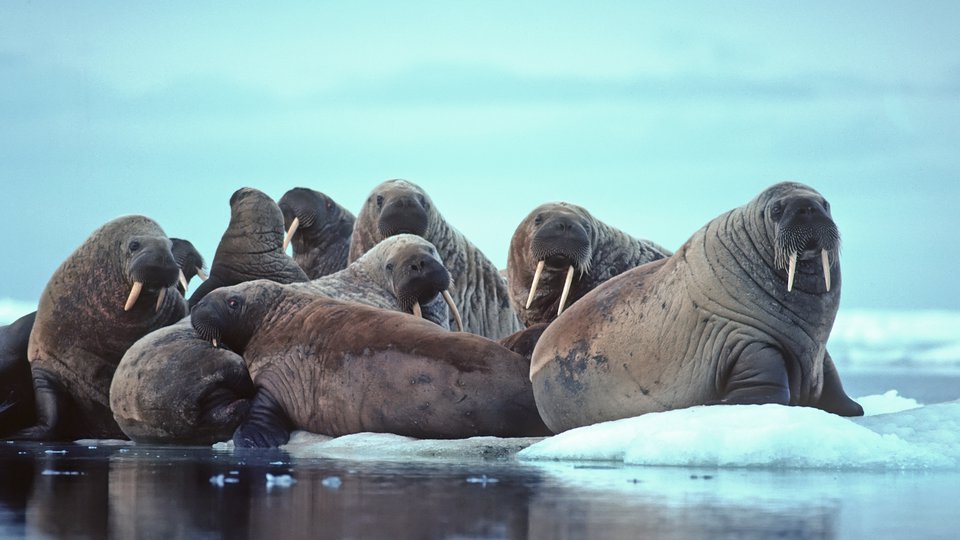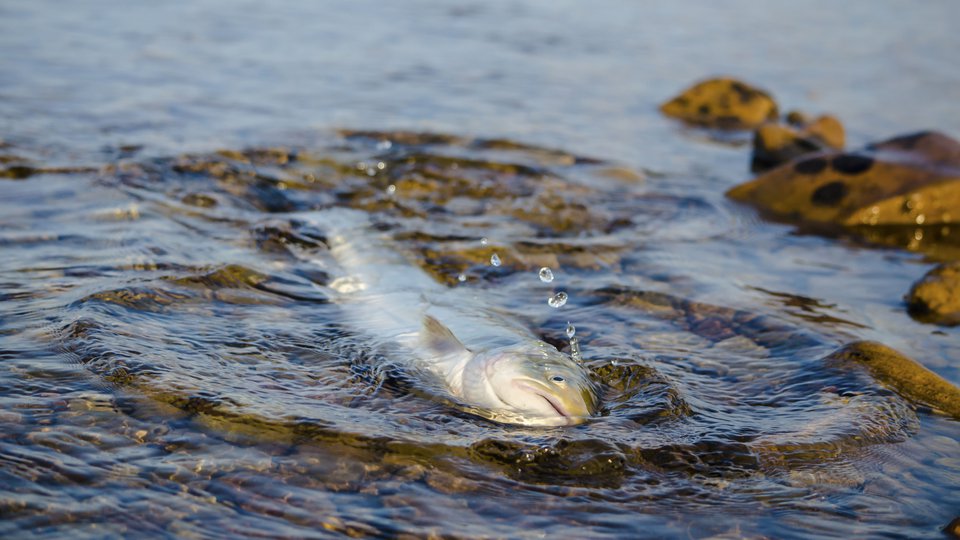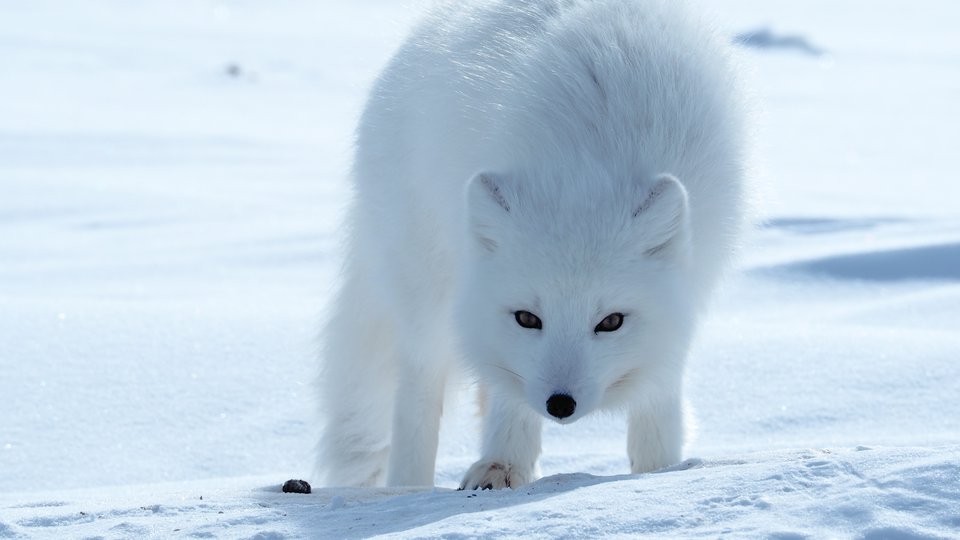
J
esper Mosbacher, a post-doctoral fellow with the Kutz Research Lab at the University of Calgary, talks about the rapid decline in muskoxen on Banks Island and Victoria Island in Nunavut. Muskoxen have long been an important source of food in the Arctic and their decline presents a significant threat to food security. Although the causes of these declines are not yet fully understood, research suggests that the proliferation of novel parasites, bacteria and viruses due to a warming climate may be to blame.
We interviewed Jesper in Winnipeg where he was attending a science workshop hosted by the Arctic Research Foundation and Polar Knowledge Canada to discuss the possibility of creating new, interdisciplinary science initiatives in the Kitikmeot region of Nunavut.
Banner Image: Muskoxen struggle to find enough food during particularly snowy winters. This means that fewer calves are born the following year. Photo by Lars Holst Hansen/University of Aarhus, Denmark





